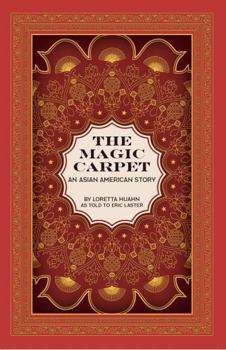The Magic Carpet: An Asian American Story
We first meet Loretta as a malaria-stricken child, when her Christianized and foreign-educated parents, once the promise of China's young Republic, are barely surviving. After years as refugees in Southern China, Macau, and Hong Kong, the family is fortunate to be physically unscathed, yet through Loretta's eyes, we come to see how each member of her multi-generational household is nursing private hurts. Defying expectations to marry a certain wealthy young man, she forges her own path-in social work, hoping to bring a measure of compassion and healing to society at large, if not to her own family.
Pursuing graduate studies abroad, another immigrant in search of the American dream, she creates the opportunity to pioneer social services for Northern California's Asian population, whose challenges she has personally experienced. With cultural sensitivity, she serves clients struggling with financial instability, domestic abuse, the stresses of migration, and what Asian cultural norms have traditionally been reluctant to acknowledge: mental illness.
Loretta candidly details her relationships with her frustrated mother, embittered grandparents, the amah she mistreats, and the teachers, classmates, boyfriends, and husband who helped shape her-as well as the refugees in the hillside shanty towns of 1950s Hong Kong, whom she routinely visited while a college student.
In her lonely early years, Loretta took solace in the story from The Arabian Nights about Prince Hussein and his magic carpet, little imagining that her true magic carpet ride would one day be working to create a more humane world. Her story is a testament to the transformative potential of education and social advocacy, and the profound impact a single "ordinary" individual can have on the lives of countless others.





